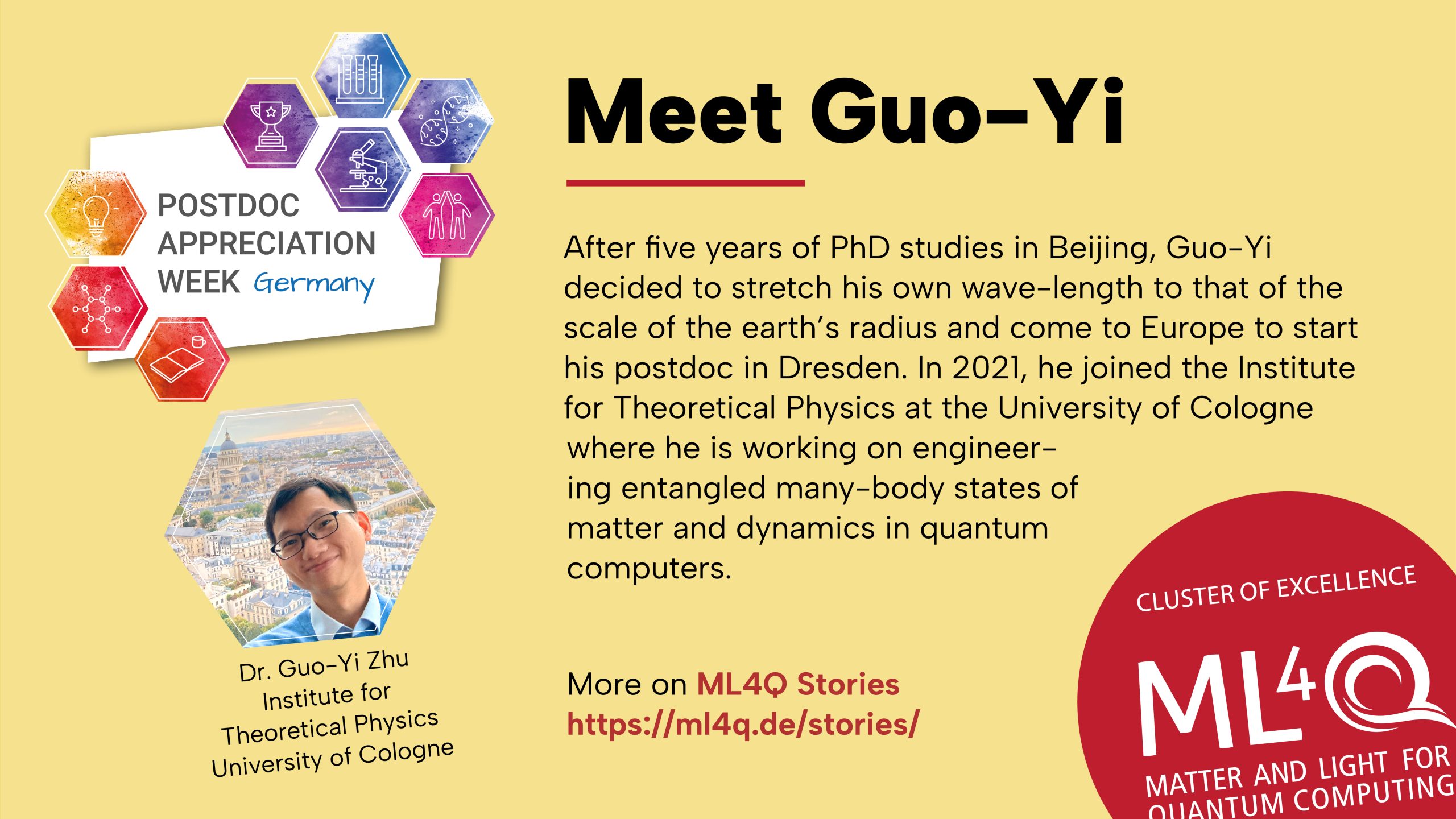It’s Postdoc Appreciation Week!
This week the global scientific community celebrates the Postdoc Appreciation Week (PAW) which was started in 2009 in the US by the National Postdoctoral Association to recognize the significant contributions postdocs and researchers make towards research and academic life in general. The PAW is also widely celebrated in the UK and Ireland and since 2022 also in Germany. The Research and Innovation Services of the Leibniz University of Hannover (LUH) teamed up with the Munich Postdoc Network (particularly Helmholtz Munich and the Max Planck Institute of Biochemistry) to establish this initiative in Germany. This year the PAW Germany coordination team invited researchers and research institutions, postdoc coordinators and research administrators all over Germany to join in creating a special program, events and a social media campaign to honor the incredible work of postdocs!
ML4Q took the chance to feature and recognize the impressive achievements of postdocs who are associated to the cluster. During the week, single postdocs and their profiles will be published on the cluster’s blog ML4Q Stories. Today we invite you to meet Dr. Guo-Yi Zhu, postdoc in the research group of Prof. Simon Trebst from the Institute for Theoretical Physics at the University of Cologne.
Guo-Yi, how would you describe your career path leading to your current position?
I earned my PhD degree of Physics in 2019 from Tsinghua University in Beijing, China. During those 5 years of study. I was primarily working in the field of condensed matter physics, where we’re more or less concerned with the state of matter in equilibrium in the long-wave-length limit. Since that I stretched the wave-length of my own to that of the scale of the earth’s radius, traveling to this continent and started my Post-doc endeavour on more dynamical topics. I’ve been working in the Max Planck Institute for the Physics of Complex Systems in Dresden for 2 years since 2019. But ironically, while my research topics went out of equilibrium to a broader dynamical realm, the global pandemic somehow occasionally localized my physical body to limited space and time. Post-pandemic, from 2021 I’ve moved to Cologne and have been working with Prof. Simon Trebst in the Institute for Theoretical Physics until now.
What are you currently working on and what other research areas would you like to discover?
Currently, I’ve been focusing on engineering entangled many-body states of matter and dynamics in quantum computers. Among the various focus research areas I’ve tried, the many-body wave function has always been a common theme of mine. Complementary to the traditional solid material route to hunt for exotic many-body state, the rising of quantum technology opens a new avenue to engineering the many-body entangled state in an ab initio way, hand in hand with the many-body state and manipulating its wave function in situ. Coming from the condensed matter background, I am becoming more and more interested in the quantum information field, that can help me grasp not only the organizing principle but also the designing principle of entangled matter. (On a higher level, of course I am forever fascinated by the fundamental understanding of space and time, which is nevertheless beyond the focal length of my current researches.)
Do you have a favorite scientist?
Albert Einstein.
Name a discovery you wished you were part of!
The best discovery I wish must of course be a future discovery yet to happen. For those in the past, on the operational level, if I had a time machine that allows me to be part of, I’d definitely like to travel back to the project when and where light speed being constant was discovered. It sounds paradoxical? Yeah I like paradox…
What is your most enjoyable thing about being a PostDoc in academia?
Freedom to explore new things every day, and to interact with a lot of nice people (also travel) around the world.
And what is the most tedious thing about being a PostDoc in academia?
Writing (papers, proposals, etc)… Nevertheless, writing is actually a complex experience to me. Much of it might be tedious, but part of it can be enjoyable, which pushes me to talk to myself and crystallize my thoughts and pass them to others.
What comes next?
Moving along the academic route, adiabatically building up my group, hunting more interesting physics, interacting with more interesting people, and above all enjoying life.
Guo-Yi’s latest paper
Interested in more career stories from our cluster?
Have a look at other stories!
